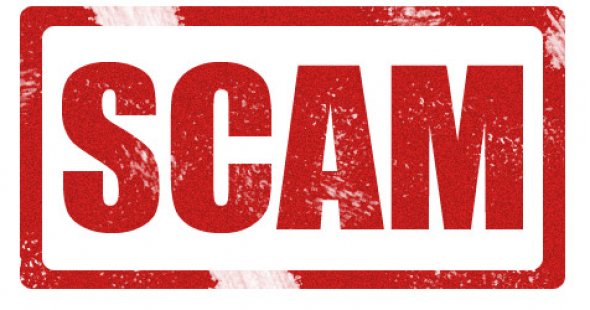
The following are some of the scams reported to Better Business Bureau serving the Northwest in August. In most instances names and locations have been omitted to protect the victims’ privacy.
ALASKA
Home Improvement Grant Scam
A woman in Anchorage reported her 80-year-old aunt was contacted through Facebook about applying for a home improvement grant. The woman states her aunt applied for a $30,000 grant and was told she needed to send money to cover taxes and fees. The woman sent a money order of $1,000 and then was asked to send more money. She has not been able to get her money returned to her.
Bad sale
An Anchorage man reported he purchased a sound system from someone for $300. The man claims he was shown an invoice slip and told there was a warranty with the purchase. He soon discovered the sound system was of poor quality. He has tried calling the seller, but has been unable to reach him.
IDAHO
Newspaper Scam
A Boise area woman reported she received a call from a woman asking her to renew her Idaho Statesman subscription. The woman states she was skeptical of the caller so she looked up her subscription and discovered it didn’t expire until February 2017.
Family Emergency Scam
A Nampa woman reports she was the target of the grandparent scam. She states she received a call from someone claiming to be her grandson who told her he broke his nose after a drunk driving accident. She soon received another call from the “grandsons” attorney asking for $1,750 to post bail. He told the woman to get a MoneyGram from Walmart and send it to them. The woman did so, but the money did not go through. She soon realized the call was a scam. Fortunately, she was able to get her money back from MoneyGram.
MONTANA
Craigslist Scam
A Colstrip resident reports they listed household items on Craigslist and then were contacted by a buyer who sent a check for more than the agreed upon price. They were told to purchase a MoneyGram for the extra money and give it to the “mover” who was supposed to pick up the items. Fortunately, they never cashed the check.
OREGON
Charity Scam
A Beaverton resident reports someone came to their door accepting donations for “Something for Soldiers Sales, LLC.” After giving $68, they looked closer at the receipt and discovered the organization was not a 5013c nonprofit. Law Enforcement agencies have warned residents about this group.
DISH Network Imposter
A White City woman reported she lost $50 after someone impersonated a DISH Network employee. She states a woman came to her door pretending to be selling DISH Network services. She gave the woman a check for $50 for a one-time process fee and her credit card information. After handing over the money she requested the check not be cashed until the third of the next month, however it was cashed the next day.
WASHINGTON
Sweepstakes Scam
A Richland resident reported they received a letter from Liberty Financial Incorporated claiming they had won a second prize of $250,000. The letter included a check from Chase Bank for $3,650. They tell BBB they were asked to pay a $3,500 processing fee. They did not pay the fee.
Employment Scam
A Bellevue woman reports she was contacted by a man using the name “Mark Blackwell,” asking her to be his daughters tutor. The man said he was sending her a check with more than her fee and told her to cash $2,000 of it to give to his daughter’s nanny. She ceased communication with the man.

![Photo by Psychonaught [public domain]](https://bbbnews4u.wordpress.com/wp-content/uploads/2014/04/american-cash.jpg?w=300&h=239)
You must be logged in to post a comment.